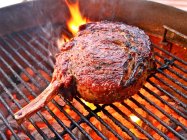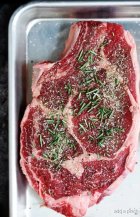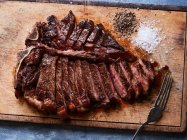fries
Active member
With more and more talk about climate change in the community, many skiers are cutting out meat/animal products from their diet, even the boss henrik himself has gone veggie to help keep his body in shape for his skiing. (see 6:45)
According the most comprehensive analysis yet on the food system’s impact on the environment, huge meat reductions are essential in avoiding a climate breakdown. The new research, published in the world’s leading multidisciplinary science journal, Nature, is the most thorough to date and combined data from every country to assess the impact of food production on the global environment. UK and US citizens need to cut beef by 90% and milk by 60% while increasing beans and pulses between four and six times. (https://www.nature.com/articles/s41586-018-0594-0)
Transitioning towards a plant-based diet could be a nice way to reduce your personal impact. No need to fear, you can get all the protein and nutrients you need from plants. If you have questions, looking for some cheap/quick meals, or just like to bitch at vegans, you've found your place.
According the most comprehensive analysis yet on the food system’s impact on the environment, huge meat reductions are essential in avoiding a climate breakdown. The new research, published in the world’s leading multidisciplinary science journal, Nature, is the most thorough to date and combined data from every country to assess the impact of food production on the global environment. UK and US citizens need to cut beef by 90% and milk by 60% while increasing beans and pulses between four and six times. (https://www.nature.com/articles/s41586-018-0594-0)
Transitioning towards a plant-based diet could be a nice way to reduce your personal impact. No need to fear, you can get all the protein and nutrients you need from plants. If you have questions, looking for some cheap/quick meals, or just like to bitch at vegans, you've found your place.







